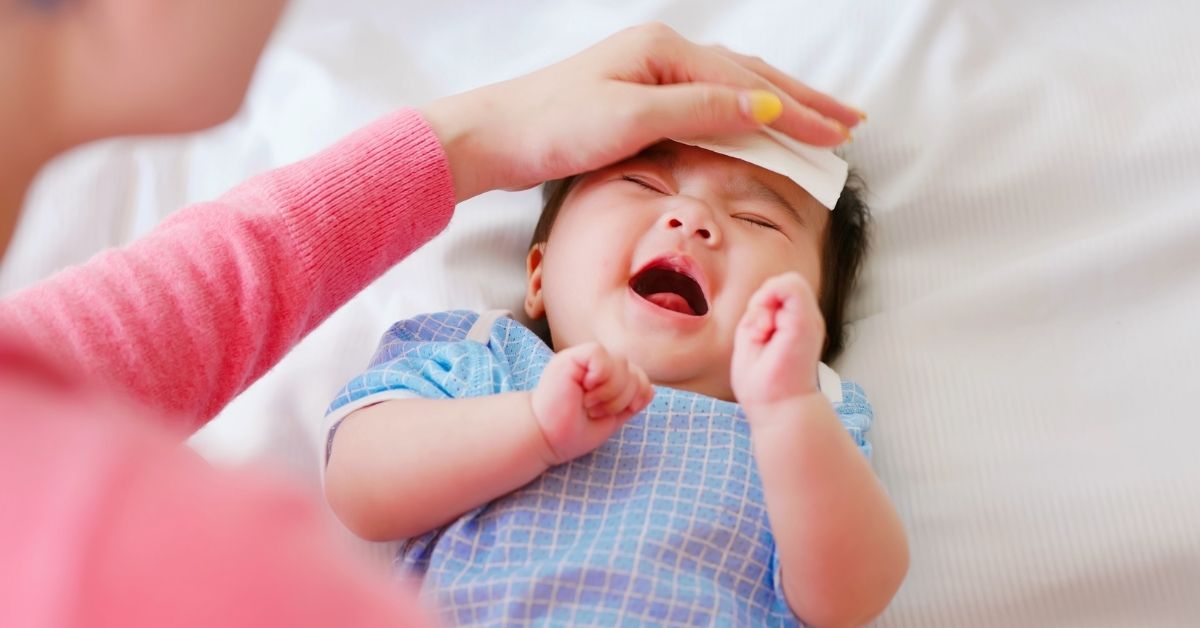The human microbiome, a complex community of trillions of microorganisms living in our bodies, plays a critical role in overall health, especially in children. This relationship extends far beyond digestion and metabolism, influencing the immune system, brain development, and behavior. In recent years, research has unveiled the profound connection between the gut microbiome and mental health, with studies pointing to its impact on children’s mood, cognitive functions, and even social behavior.
In this article, we explore the intricate relationship between the microbiome and a child's behavior, focusing on how the gut-brain axis functions, the influence of early microbial exposure, and the potential behavioral consequences of microbiome imbalances.
The Gut-Brain Axis: A Communication Highway
The concept of the gut-brain axis refers to the bidirectional communication network between the gastrointestinal tract and the central nervous system. The gut microbiota, often referred to as the "second brain," sends signals to the brain via neural, hormonal, and immune pathways. These pathways help regulate not only physical health but also mental and emotional well-being.
How the Gut Microbiome Affects Brain Development
From birth, the composition of a child’s microbiome is shaped by various factors, including genetics, diet, mode of delivery (vaginal birth or cesarean), breastfeeding, and environmental exposures. The early development of the microbiome is crucial, as it coincides with key stages of brain growth. Microbes in the gut produce neurotransmitters such as serotonin, dopamine, and gamma-aminobutyric acid (GABA), all of which influence mood, anxiety, and cognitive processes.
By interacting with the central nervous system, the microbiome helps to:
- Modulate stress responses: Gut bacteria influence the production of cortisol, a stress hormone that can affect mood and behavior. Dysbiosis, or an imbalance in gut bacteria, may lead to increased stress reactivity and anxiety in children.
- Impact brain plasticity: The gut microbiome plays a role in neurogenesis, synapse formation, and myelination, processes that are essential for cognitive functions like learning, memory, and emotional regulation.
- Shape social behavior: Certain bacterial strains have been shown to affect social interaction and communication in animal models, offering clues to their potential impact on children's social development.
Early Microbial Exposure and Behavioral Outcomes
The early years of life are crucial for establishing a healthy microbiome, as this period sets the foundation for long-term mental and physical health. Any disruptions to the microbiome during infancy—due to factors such as antibiotic use, a lack of breastfeeding, or an unhealthy diet—may have lasting effects on a child's behavioral development.
The Role of Birth and Feeding Practices
The method of birth and early nutrition significantly impacts the establishment of a child's microbiome. Studies have shown that:
- Vaginal birth vs. cesarean section: Babies born through vaginal delivery are exposed to beneficial bacteria from their mother's birth canal, which helps to establish a healthy microbiome. Cesarean-born babies, on the other hand, may have a delayed colonization of beneficial bacteria, which has been linked to increased risk of behavioral issues, such as anxiety and ADHD (Attention Deficit Hyperactivity Disorder).
- Breastfeeding vs. formula feeding: Breast milk contains prebiotics and probiotics that foster the growth of healthy bacteria in the infant's gut. Formula-fed babies, on the other hand, may have a different microbial composition, which can influence their immune and neurodevelopmental outcomes. Research has suggested that breastfed children tend to have better cognitive and social outcomes, possibly due to the beneficial effects of a healthy microbiome.
Microbiome Dysbiosis and Behavioral Disorders
Disruptions to the gut microbiome, often referred to as dysbiosis, have been linked to various behavioral and mental health disorders in children. Research in this area is still evolving, but mounting evidence points to the microbiome's role in conditions like autism spectrum disorder (ASD), ADHD, anxiety, and depression.
Autism Spectrum Disorder (ASD)
Autism is a neurodevelopmental disorder characterized by impaired social interactions, communication difficulties, and repetitive behaviors. Although the exact causes of ASD are still under investigation, recent studies have suggested that gut dysbiosis may contribute to its development.
Children with ASD often exhibit gastrointestinal issues, such as constipation and diarrhea, which may be linked to microbial imbalances. Furthermore, certain gut bacteria, like Clostridium, have been found in higher concentrations in children with ASD, possibly contributing to abnormal behavior by producing toxins that affect brain function.
Attention Deficit Hyperactivity Disorder (ADHD)
ADHD is another behavioral disorder that has been associated with gut microbiome imbalances. Children with ADHD often have altered gut microbiota compositions, with reduced levels of beneficial bacteria, such as Bifidobacterium and Lactobacillus, which are known to promote healthy brain function.
While more research is needed, the link between the gut microbiome and ADHD suggests that improving gut health through diet, probiotics, or other interventions may help manage symptoms such as impulsivity, inattention, and hyperactivity.
Anxiety and Depression
Children who experience anxiety and depression also tend to have altered gut microbiomes. The gut bacteria produce neurotransmitters that influence mood, such as serotonin and GABA. Dysbiosis can disrupt the production of these neurotransmitters, leading to mood imbalances.
For instance, a diet high in sugar and processed foods can negatively impact gut health, leading to increased inflammation and a heightened risk of anxiety and depression. This highlights the importance of a balanced diet in promoting both gut health and emotional well-being in children.
The Role of Diet in Shaping the Microbiome and Behavior
Diet is one of the most influential factors in shaping the gut microbiome, particularly in children whose microbiomes are still developing. A diet rich in fiber, fruits, vegetables, and fermented foods supports a healthy and diverse microbiome, which in turn promotes better mental health and behavior.
Prebiotics and Probiotics
Prebiotics are non-digestible fibers that serve as food for beneficial gut bacteria, while probiotics are live bacteria that can help balance the gut microbiome. Incorporating both into a child's diet can have positive effects on their behavior and mental health.
- Prebiotics: Foods rich in prebiotics, such as bananas, garlic, onions, and whole grains, promote the growth of healthy bacteria. These fibers help maintain a stable gut environment, supporting cognitive and emotional development.
- Probiotics: Fermented foods like yogurt, kefir, and sauerkraut contain live bacteria that can restore balance to the gut microbiome. Probiotic supplements have been studied as potential treatments for anxiety, depression, and even ASD, although more research is needed.
Omega-3 Fatty Acids
Omega-3 fatty acids, found in fish, flaxseeds, and walnuts, are known for their anti-inflammatory properties and have been shown to support brain health. These healthy fats can influence the gut-brain axis by reducing inflammation and promoting a healthy gut environment, which may improve mood and behavior in children.
Interventions to Support a Healthy Microbiome
Given the emerging evidence on the gut-brain connection, several strategies may help support a child's microbiome and, by extension, their behavioral health. These include:
- Dietary changes: Incorporating a diet rich in fiber, prebiotics, probiotics, and omega-3 fatty acids can support a healthy gut microbiome. Reducing processed foods and sugars may also help prevent dysbiosis.
- Probiotic supplementation: In cases of gut dysbiosis, probiotic supplements may help restore balance to the microbiome and improve behavioral outcomes. However, it is important to consult a healthcare provider before introducing supplements.
- Limiting antibiotic use: While antibiotics are sometimes necessary, overuse can disrupt the microbiome, especially in children. Limiting their use and exploring alternative treatments when possible can help preserve gut health.
- Reducing stress: Chronic stress can negatively impact the gut microbiome, leading to imbalances that may affect a child's behavior. Mindfulness techniques, physical activity, and adequate sleep can all help reduce stress and promote a healthy gut-brain connection.
Conclusion
The microbiome is a key player in a child’s development, influencing not only physical health but also behavior, emotional regulation, and cognitive functions. By understanding the gut-brain axis and the importance of a balanced microbiome, parents, educators, and healthcare providers can take proactive steps to support a child’s mental and behavioral health.
As research continues to uncover the intricacies of the microbiome, it’s clear that nurturing a healthy gut environment from an early age has profound implications for long-term well-being. From diet to stress management, small interventions can make a big difference in shaping the future health and behavior of children.








